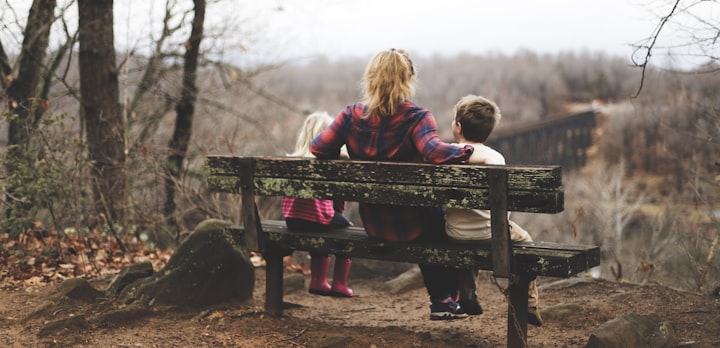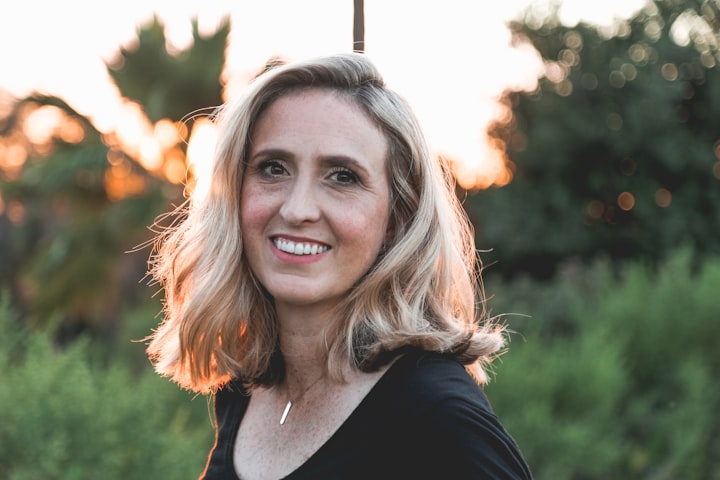11 Priceless Lessons That Every Parent Should Know
Are you a good parent?

Dr. Stephen Cowan has been practicing pediatrics for over 25 years. These are 11 things that any parent would want to know. "I saw a deeper view of his health, and these are invaluable lessons." Learn from Stephen Cowan's experience:
1. Go for a walk with your children, play with them, tell them about your childhood, eat together…
These are real foundations in a child's life. Unfortunately, today's parents are too busy speeding up their daily lives. Their children grow up with them away and without interacting too constructively. In our ultra-mechanized world we forget that life involves a process of evolution, we grow, we grow like the fruit of a tree.
2. Family traditions establish deep ties and ensure a healthy life
Specific events within a family help that family members to establish strong bonds. During these events, they share feelings of affection and connection, as well as the sense of security that every child needs to travel this world.
3. We develop cyclically
In every child's life there is a unique rhythm and pulse - sometimes intense, sometimes calm. Every stage of a child's life is equivalent to a new perspective on the world. Learning does not mean accumulating information.
It is a complex process by which we transform our ideas and sometimes we need to see things from a new perspective to better understand them. Growing up cyclically means that we do not have a single chance to learn anything. The same lesson will be offered to us incessantly until we learn it as we go through the seasons of life.
If parents understand this, they can understand why children should not be pressured to do good from the beginning.
4. Encouragement is not equal to indulgence
Our role is not to raise little princes and princesses. Princes do not do well in this society. Recent studies have shown that indulgence weakens your child's ability to cope with life, to survive, nullifying his motivation or desire for success.
Encouraging means instilling courage in your child, not doing the things he should be doing. Create a supportive context without pulling your child down. Unconditional love is that ingredient that helps the child to take on trials more easily, to experiment, to make mistakes, without judgment.
Sometimes being an encouraging person in your child's life means stepping back and offering a helping hand with love and compassion when circumstances demand it.
There is a certain spatiality in offering encouragement. Indulgence, on the other hand, limits your child's freedom. Indulgence leads to limiting thinking, it does not open horizons. It makes the child impatient and naughty when he doesn't get what he wants. But doing things in life requires patience and determination.
5. Children are our spiritual teachers
Open your eyes and heart, children offer you a new perspective on life, a surprisingly forgotten wisdom.
When a child "stretches your strings", don't forget, these are your strings and not his. Take your time and try to understand and see what your child has to teach you. You manage to open the way to yourself, which is transformative for both you and your child.
6. A symptom is the way the body tells us that something needs to change
Medical education is more focused on stopping a symptom, but it's like saying to the body: shut up! We do not trust the intelligence of the body. We think too much and then we are afraid of the feelings in our body.
But the kids taught me that symptoms like fever, for example, are not necessarily a problem. But the thing that caused the fever is the problem. Temperature is the way the body tries to cope with what is happening.
7. Be prepared
It's a state of waiting that either gives you confidence or fear. Rather than being constantly afraid of our children's health, it is better to know natural ways we can help children recover from their illness quickly and efficiently: good nutrition, hydration, rest, and exercise. But most importantly? Rather than focusing on how often your child gets sick, celebrate the good times!
8. Healing takes time
We always try to get well as soon as possible because we don't have time to get sick. In medicine, emergencies are of course treated as effectively as possible. However, childhood health problems do not require strong medication, but time.
I realized that taking another day off from work when the child was sent home from school because he had a cold could add stress to our daily lives. But the children taught me that healing has its stages, it is a process that has its course. When we give time for healing, the disease becomes a learning journey and not just a destination; we began to see our health and disease as two sides of the same coin.
9. The secret of life is to let go
Life is a constant process of giving up. Everything is constantly changing. As spring abandons itself to spring, so does every process of learning to presuppose the idea of giving up. Crawling helps us walk. The murmur makes room for speech. After childhood, the teenager follows. Breathe, exhale.
Every season, every stage, every rhythm of life involves giving up. This helps us get rid of what we don't need to make room for uniqueness in nature. The best way for children to teach me to give up was through play. Gambling means giving up inhibitions; the game frees us up and helps us not to take ourselves too seriously.
10. Trust yourself: You are an expert when it comes to your child
One of the most important things new parents need to know is that they need to be confident. Nothing is more challenging than the birth of a child. We expect to know everything and yet we know nothing.
But the children taught me that this "knowing nothing" actually opens the door to the possibility of further developing your intuition. Being conscious parents means listening to our children's lives with an open heart and without panic or fear. Studies have shown that the mother's intuition is stronger than any laboratory test.
Unfortunately, today we are inundated with so much frightening information that our ability to listen to our intuition diminishes. Take a trip with your baby.
Imagine what it's like to look at the world around you before you know the language before you know all these labels that scare us and that divide everything into "good" and "bad", "right" or "wrong". Babies have no enemies.
They have what Buddhists called the "beginner's mind." Watch your baby breathe from his belly. This is Qigong breathing. Try not to think for a moment and breathe that way. You may find some answers in this way of breathing.
11. Choose a perspective on life
The children taught me how to look at life from perspective. When we look back and look at the big picture of our lives, we discover wisdom and compassion.





Comments
There are no comments for this story
Be the first to respond and start the conversation.